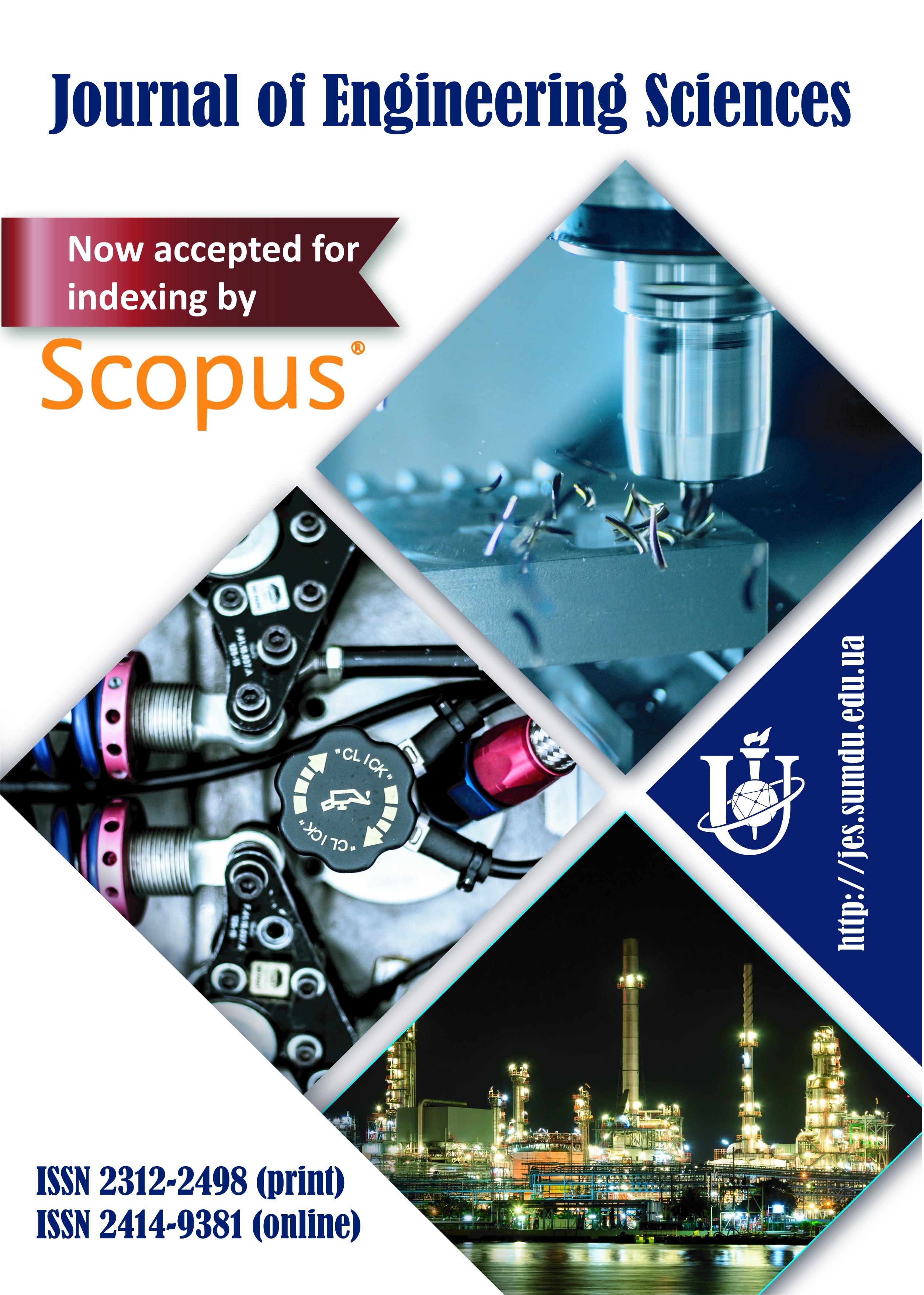The Role of Smart Sensors in Production Processes and the Implementation of Industry 4.0
Author(s): Karabegovic I.1*, Karabegovic E.2, Mahmic M.2, Husak E.2
Affiliation(s):
1 Academy of Sciences and Arts of Bosnia and Herzegovina, 7 Bistrik St., 71000 Sarajevo, Bosnia and Herzegovina;
2 University of Bihac, Irfana Ljubijankica St., 77000 Bihac, Bosnia and Herzegovina
*Corresponding Author’s Address: [email protected]
Issue: Volume 6; Issue 2 (2019)
Dates:
Paper received: September 1, 2019
The final version of the paper received: November 23, 2019
Paper accepted online: November 28, 2019
Citation:
Karabegovic I., Karabegovic E., Mahmic M., Husak E. (2019). The role of smart sensors in production processes and the implementation of Industry 4.0. Journal of Engineering Sciences, Vol. 6(2), pp. B8-B13, doi: 10.21272/jes.2019.6(2).b2.
DOI: 10.21272/jes.2019.6(2).b2
Research Area: MANUFACTURING ENGINEERING: Technical Regulations and Metrological Support
Abstract. In the world of global competition, customers have increasing demands that companies must meet in order to remain active in the global market. For this reason, it is necessary to use new technologies in the production processes, i.e. to implement Industry 4.0. In other words, we need to create a connected company through the digital transformation that enables production processes to discover new ways to increase productivity and improve overall business performance. Companies need to get involved and start a digital system, and from supplier to customer. It is a key to the hidden value that can contribute to the company’s productivity, compliance, profitability, as well as the quality of the finished product, and eventually the introduction of flexible industrial automation of production processes. The aforementioned technologies and Internet of Things connect the physical and virtual world with a purpose to better collect and analyze data, transforming them into information that reaches decision-makers. To do this, it is necessary to implement smart sensors that provide information at all times. The implementation of Industry 4.0 in production processes is unthinkable without smart sensors and provides the following: faster product development time, lower overall costs, improved use of production processes and their optimization, as well as company risk management. The paper will outline the motives for the implementation of smart sensors and applications of smart sensors in production processes.
Keywords: production process, smart sensor, Industry 4.0, production automation, digital transformation, flexible automation.
References:
- Sihn, W., Jager A., Humme, V., Ranz F. (2016). Implications for Learning Factories from Industry 4.0. ESB Business School, Reutlingen University, Reutlingen, Germany.
- Bunse, B., Kagermann, H., Wahlster, W. (2017). Industrie 4.0: Smart Manufacturing for the Future. Brochure, 20750, Germany Trade and Invest, Gesellschaft für Außenwirtschaft und Standortmarketing GmbH, Berlin, Germany.
- Dolecek, V., Karabegovic, I. (2008). Robots in the Industry. Technical Faculty of Bihac, Bihac, Bosnia and Herzegovina.
- Rockwel Automation (2016). Condition Sensors and Switches, Publication 836E-BR001C-EN-P, USA.
- Rockwel Aotomation. (2017). Get Smart, Key Considerations for Developing Smart Machines and Equipment. Publication: OEM-SP019B-EN-P, USA.
- Byeong, W. A., Jung, H. S., So-Yun, K., Joohee, K., Sangyoon, J., Jihun, P., Youngjin, L., Jiuk, J., Young-Geun, P., Eunjin, C., Subin, J., Jang-Ung, P. (2017). Smart Sensor systems for wearable electronic devices. Polymers, Vol. 9(303), pp. 1–32.
- Karabegovic, I., Karabegovic, E., Mahmic, M., Husak, E. (2015). The application of service robots for logistics in manufacturing processes. Advances in Production Engineering and Management, Vol. 10(4), pp. 185–194.
- Jeremy, M. (2015). Robotics for manufacturing applications: Current state of collaborative robotics and flexible automation. Collaborative Robotics Workshop 2015, Advantages and Challenges for Small Manufacturers. Charles I. Ecker Business Training Center Columbia, USA, pp. 14–29.
- Karabegovic, I., Karabegovic, E., Mahmic, M., Husak, E. (2019). Implementation of Industry 4.0 and industrial robots in production processes. In: Isak Karabegović (eds) New Technologies,Development and Application II 2019. Lecture Notes in Networks and Systems, Springer Nature Switzerland AG, Vol. 76, pp. 96–102.
- Karabegovic I., Husak, E. (2018). Industry 4.0 Based on Industrial and Service Robots with Application in China. Mobility and Vehicle, Vol. 44(4), pp. 59–71.
- Johan, H. H., Frank, R. R., Gertvan H. (1994). Developments in integrated smart sensors. Sensors and Actuators A: Physical, Vol. 43(1–3), pp. 276–288.
- Karabegovic, I. (2017). The role of industrial and service robots in fourth industrial revolution with focus on China. Journal of Engineering and Architecture, Vol. 5(2), pp. 110–117.
- Andreas, S., Nikolai, H., Tizian, S. (2018). Sensors 4.0 – smart sensors and measurement technology enable Industry 4.0. Published by Copernicus Publications on behalf of the AMA Association for Sensor Technology, Vol. 359–371.
- Gary, W. H., Joseph, R. S., Peter, J. H., Chung-Chiun L. (2010). Smart Sensor Systems. The Electrochemical Society Interface, pp. 29–34.
- Rockwel Automation (2016). Smart Sensors, Enabling Smart Machines for The Connected Enterprise. Publication IOLINK-BR001B-EN-P, USA.
- Rockwel Automation (2011). Sensor Application Guide. PublicationSENS-AT001B-EN-P–May2011, USA.
- Rockwel Automation (2016). Integrated Smart Sensors, Publication SENSOR-BR002A-EN-P, USA.
- Manali, C., Srinu, D. (2014). Study of smart sensors and their applications. International Journal of Advanced Research in Computer and Communication Engineering, Vol. 3(1), pp. 5031–5034.







